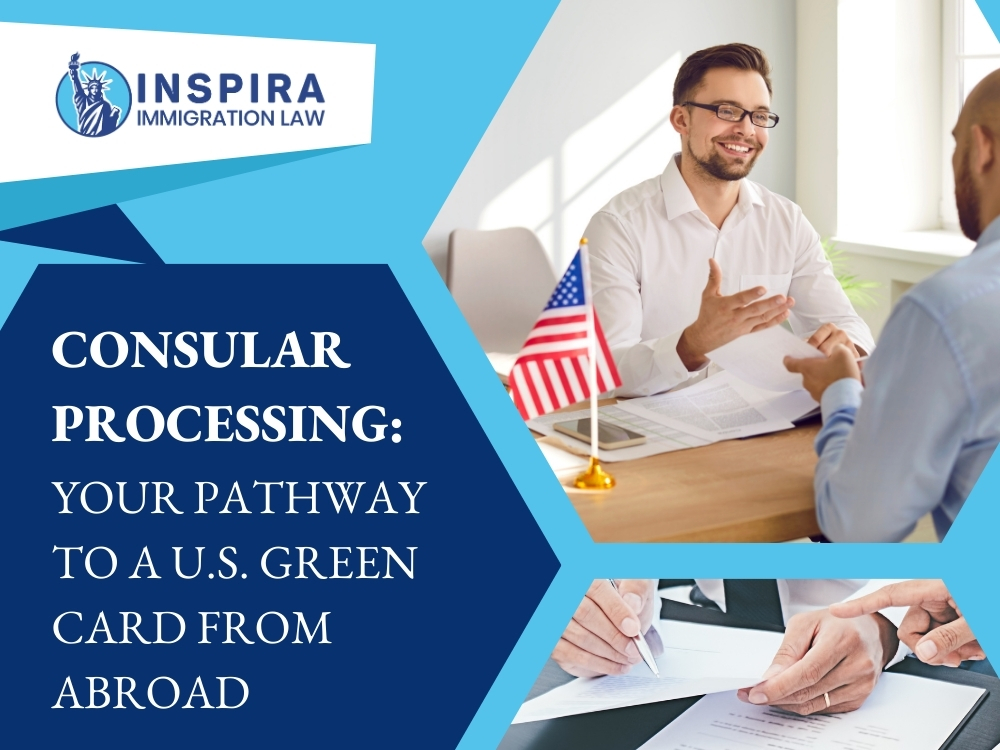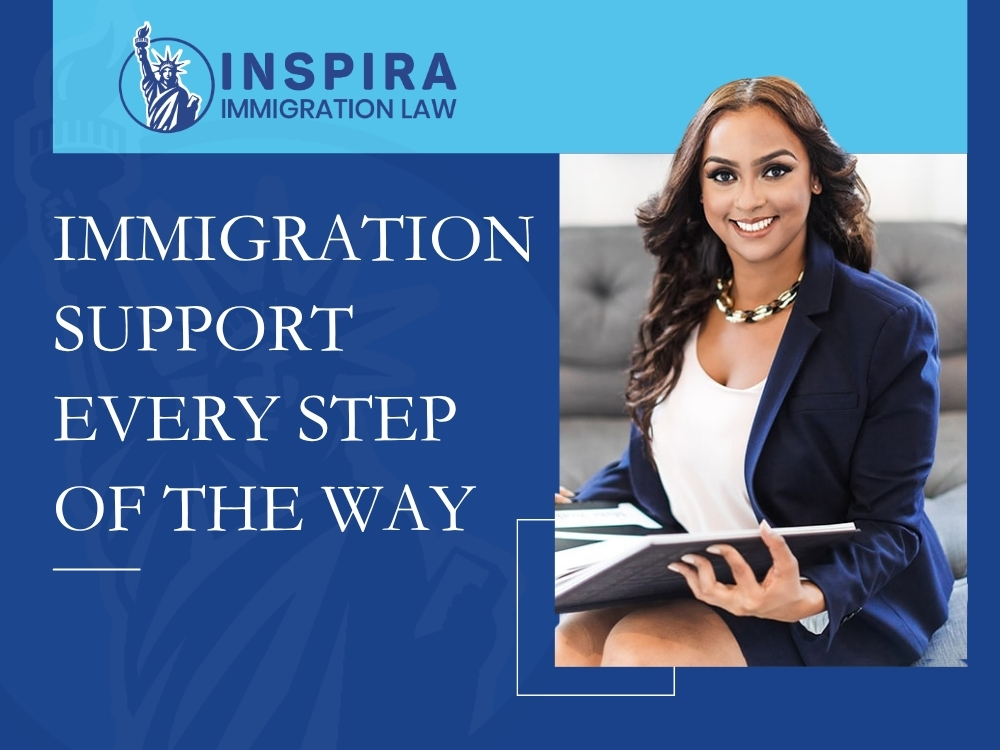If you live outside the U.S., applying for a green card often involves a process known as consular processing.
At Inspira Immigration Law, we have worked closely with families and workers who want to travel to the U.S. for permanent residence through consular processing. This guide will walk you through the process to apply for a green card.
Whether it’s a green card, waiver, or humanitarian relief, we’ll review your case and explain what’s possible.
Consular processing refers to the pathway used by individuals outside the U.S. to apply for a green card and eventually become lawful permanent residents. Instead of adjusting your status in the U.S., this process involves interacting with a U.S. consulate or embassy in the applicant’s country of residence.
Through consular processing, applicants can apply for a green card without stepping foot in the United States.

A U.S.-based petitioner files an official petition to initiate the process. The petitioner can either be:
Once the U.S. Citizenship and Immigration Services (USCIS) approves the petition, it is sent to the National Visa Center (NVC) under the Department of State. The NVC takes over responsibilities like:
The petition will remain there until you receive your immigrant visa number. See the USCIS Visa availability and priority dates pages for more information.
Consular Processing Time After I 140 Approval
Consular processing time after I 140 approval depends on several variables, including visa category and country of origin. For employment-based categories, delays can result from annual visa caps or high demand from specific countries.
H1B Extension Went Into Consular Processing – What’s Next?
If your H1B extension application went into consular processing during this stage, you will likely need to go back to your home country for an interview. Employers and applicants must follow the procedural steps outlined by the consulate. The applicant must provide documentation about their employment, the H1B petition, and evidence of ongoing U.S. assignments in their visa interview.
H1B extensions can often avoid consular processing with the help of an experienced immigration lawyer.
The NVC will notify the petitioner and you (the beneficiary) when the visa petition is received and of your priority date. They will also inform you when you must submit:
We recommend that applicants regularly check the U.S. Visa Bulletin for the priority date on category-specific visa applications.
Once a visa has become available to you, the U.S. consulate or embassy in your home country will schedule a visa interview to determine your eligibility.
Approved applicants receive a sealed visa packet to present to a Customs and Border Protection (CBP) officer at the U.S. port of entry. Once admitted, you’ll officially become a lawful permanent resident.
At Inspira Immigration Law, we guide immigrants, families, and employers through the U.S. immigration system. With our team of dedicated attorneys and caseworkers, you’ll know you’re in good hands. Schedule a consultation with us for personalized advice and assistance with consular processing.
